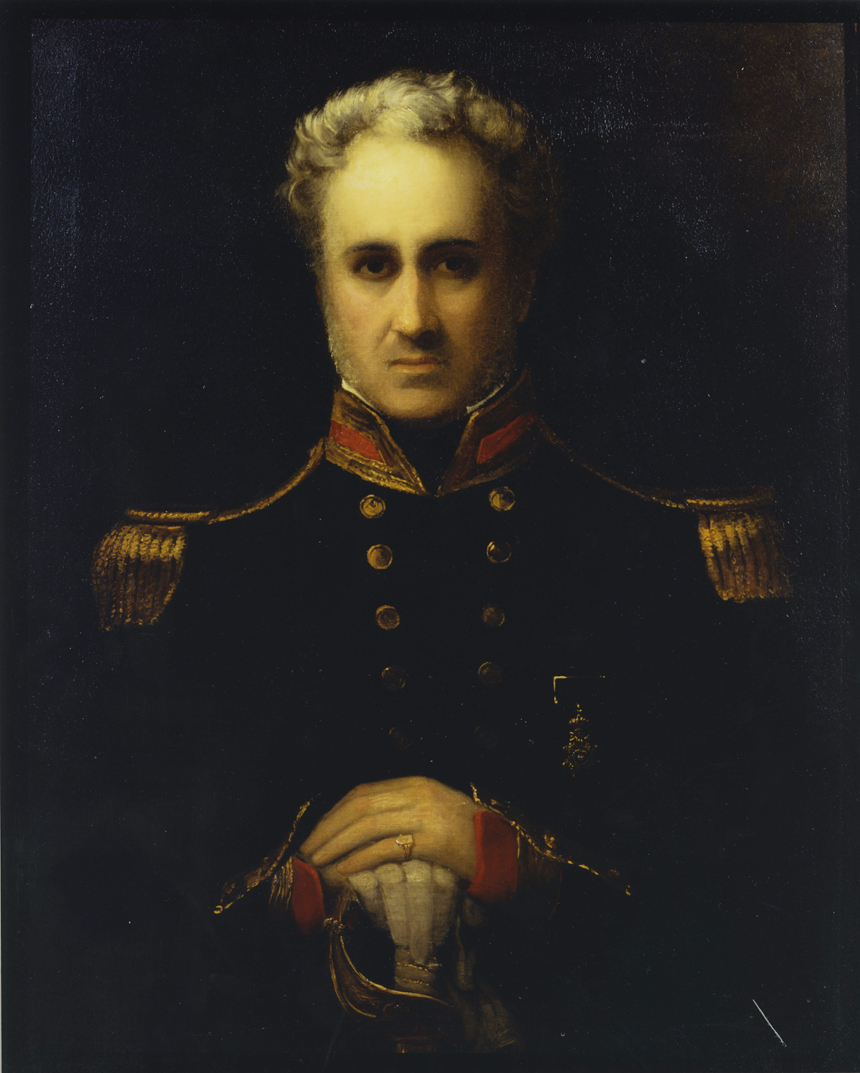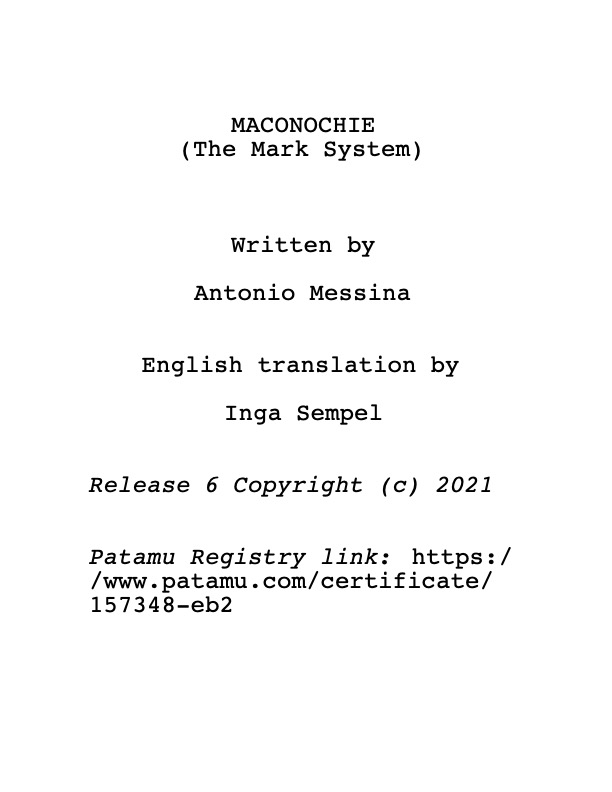Maconochie (The Mark System)
Feature film (version 06 – 120 pages)
Drama – Historical – Inspired by real events
Text in English (translation from Italian by Inga Sempel)
Characters: 1 main character, 47 total (9 with more than 10 lines)
Locations: 35 total (12 used in at least 3 scenes)
Period: around 1840
Locations of the story: Van Diemen’s Land, ship Nautilus, Norfolk Island Penitentiary (Pacific Ocean)
Legal deposit: Patamu Registry
For contact, please click to fill in the form
Prizes
First prize:
The Monthly Film Festival (2022 June-July).
Finalist:
SR Socially Relevant Film Festival New York (2024); Wiki: The World’s Fastest Screenplay Contest! (2021).
Semifinalist:
The Golden Script Competition (2023); Byron Bay International Film Festival (2022 October).
Quarter finalist or Selected:
Bondi International Screenplay Competition (2023 June); Manchester Film Festival Screenplay Competition (2023 January); Page Turner Screenplays (2022 September); Hot Springs Screenplay Competition (2022 July); Los Angeles International Screenplay Awards (2021 Summer); Emerging Screenwriters Genre Screenplay Competition (2021 August).
Synopsis
In January 1837, Scottish nobleman Alexander Maconochie landed with his wife and six children in Van Diemen’s Land (modern-day Tasmania). Behind him, Maconochie has a long and distinguished service in the Navy, followed by prestigious appointments in the Royal Geographical Society and the University of London. Ahead of him, the promise of a position in the colonial administration corresponding to his rank and expectations.
The following three years turn into a long and increasingly bitter wait for the promised post. His inactivity induced him to accept the assignment proposed by the Society for the Improvement of Prison Discipline (SIPD), an association fighting for the abolition of the use of deportation in the colonies of the Empire: Maconochie was to carry out an investigation into the conditions of the deportees and the effects of deportation.
Maconochie notes dramatic conditions. Prisoners are subjected to violent and systematic punishment; their time is an empty waiting for the period of their punishment to pass; when they return to freedom they are people who are incapable of regaining a place in society.
Direct observation led Maconochie to the conviction that it was necessary and possible to act for the social and moral recovery of the deportees through an elaborate incentive mechanism that would empower them and prepare them for their return to the world of the free people. Thus the Mark System was born.
In the course of his investigation on behalf of the SIPD, Maconochie experiences the closeness of his young daughter Mary Ann and the animosity of Colony Secretary John Montagu, a man who feels his position of power is threatened by any change.
Maconochie is recommended by the SIPD to the government for the direction of the most feared penitentiary in the British Empire: Norfolk Island, a spot in the Pacific Ocean at the antipodes of the motherland, the theatre of every horror. It is in this extreme location that its creator would be given a chance to put the System to the test.
The possible assignment to Maconochie is well seen by both Franklin, who would remove himself from embarrassment over his broken promise to give Maconochie a place, and Montagu, who with Maconochie away could weave his own plot to further the System’s failure and, with it, extinguish any hope of a career for Maconochie.
Maconochie is uncertain. Norfolk Island is the chance to prove the System and its effectiveness but also the place where the risk of failure is highest. It is also a long way from the ultimate judge of its work, namely the Government in London, to whom any results will come through the reports of Governors Franklin, in Van Diemen’s Land, and Gipps, in Australia, and through the reports of the press in Hobart and Sydney, all of whom are tied to Montagu. To give up is to miss the opportunity to experience the System and remain languishing in Hobart. To succeed, on the other hand, could lead to applying the System in Hobart, Sydney and who knows, even in the motherland. This thought prevails over the others and the assignment is accepted.
Maconochie and two hundred new deportees land on Norfolk Island on 6 March 1840. This time, too, he has his family with him, including his favourite Mary Ann who, however, to her father’s chagrin, reacted badly to the news of the transfer.
Maconochie threw himself enthusiastically into the venture, quickly making many changes in the lives of the deportees and the island. As time goes by, however, he realises some weaknesses in his System as he is confronted with old and new enemies. On Norfolk Island, in fact, the regime established by Maconochie generates the reactions and contrasts, of a different nature but with converging effects, of the garrison soldiers and the strongest band of convicts, the one that called itself The Ring. In Hobart and Sydney, on the other hand, the press manoeuvred by Montagu also casts moments such as the party Maconochie throws on the island for the Queen’s birthday in a bad light.
Fears over the weakness of his position with the authorities and public opinion are at the root of a private grief: Mary Ann is sent back to England to nip in the bud the emotional bond with a deportee. Maconochie fears that such a marriage would further weaken his position, Mary Ann does not hesitate to reproach her father for the inconsistency between the ideas set out in the System and the refusal to allow the marriage.
Serious incidents of violence, suspected to be due to the Ring, are grafted onto the daily obstacles. In Hobart, Montagu fans the flames by blaming the Mark System for an out-of-control penitentiary.
Maconochie falters but a small core of convicts restores his strength by appreciating the System and suggesting how to improve it.
Manoeuvred by Montagu, news about Norfolk Island travels as far as Sydney and London and the Governor of Australia, George Gipps, decides to visit the island unannounced. What he sees prompts him to send a positive report on Maconochie’s actions and the situation on the island. When he writes, he does not yet know that on the basis of press reports and pressure from Montagu’s friends, the government has already decided to relieve Maconochie of his post. Thus, when Gipps’ letter is still halfway to Britain, Maconochie learns that he has to leave Norfolk and discontinue his experiment.
Under the new director, Norfolk Island once again becomes the scene of violence and horror.


